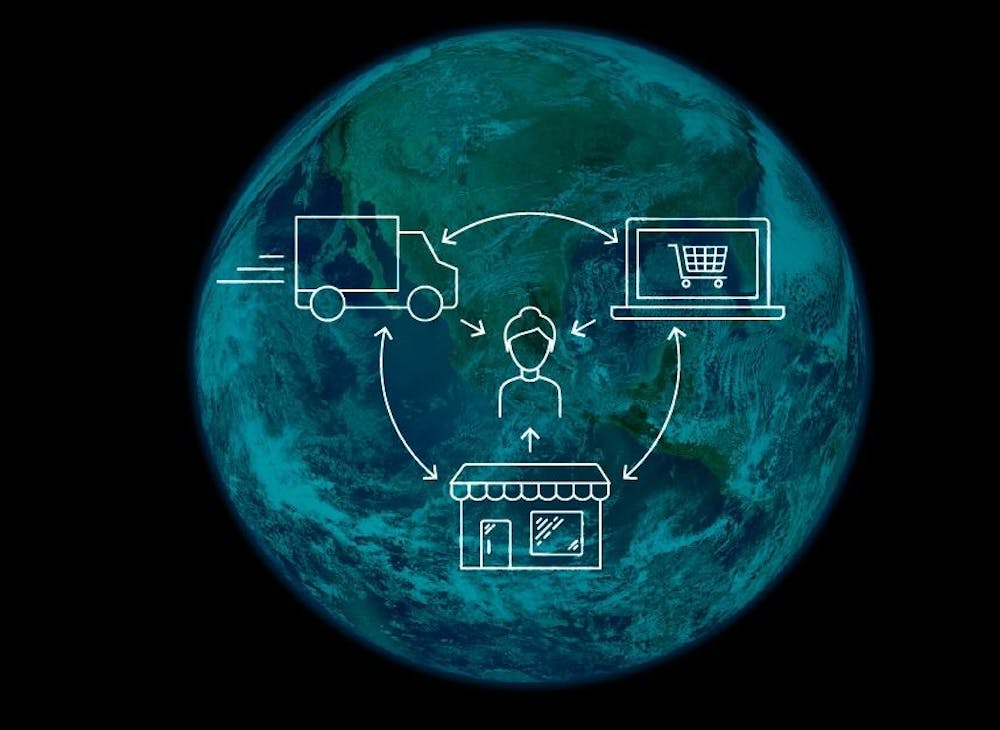Mattresses delivered in tiny boxes. Experimental, aesthetically–branded vinegar. Ass wipes, but for dudes. What do these three things have in common besides the fact that you never knew they existed?
In recent years, direct–to–consumer (DTC) companies have had a grip on our Instagram feeds and our spending power. Every other day, there’s a new product that feels like it was thought up via Mad Libs, like non–alcoholic drinks that taste like alcohol or aesthetic emergency kits. My algorithm keeps recommending me bras made for small breasts, a disturbingly accurate targeted ad.
DTC companies sell products directly to customers, bypassing wholesalers or third–party retailers. With subscription services, custom formulas, and colorful branding galore, they’re a millennial New York transplant’s wet dream.
Some of these companies have become ubiquitous. Chances are high that you’ll spot a pair of Warby Parker frames on any given stroll down Locust, or that the frat boy you hooked up with last night owns a pair of Chubbies. Your friend with 2,000 Instagram followers is a micro–influencer for Parade underwear, and everyone and their mother owns at least one shade of the Outdoor Voices Exercise Dress.
As with all things that skyrocket into mainstream popularity, it’s easy to critique these products, write them off as overpriced, and brand the people who buy them frivolous. Price is a completely valid concern, but if you look past the formulaic branding and lose the internalized misogyny, buying from DTC companies can be a more responsible use of your money. DTC companies often work with smaller, more ethical manufacturers, have greater transparency around their sourcing processes, and create more niche products for underserved audiences.
We’re well versed in the conversation surrounding fast fashion companies like Shein and Zara that have harmful manufacturing practices and cause a barrage of negative environmental consequences. Many new DTC companies recognize that. Buying from a smaller company or buying more expensive items isn't a surefire way to shop ethically, but because consumers have become more conscious about sustainability, DTC companies often provide more information about how their products are made.
BAGGU produces one–piece reusable bags assembled from recycled nylon, minimizing waste by using as few materials as possible . This recycled nylon is produced from pre–consumer waste, which means the company is using fabric that would otherwise end up in landfills. While we should always evaluate what a company says about its own sustainability with a grain of salt, more transparency is a good sign.
The people behind the products also matter. Just like we can boycott companies with founders we’d rather not support, we can choose to proactively support BIPOC– and women–owned companies. Some DTC companies were founded by entrepreneurs who recognized inequalities or issues with the products they were using and took action. For example, Topicals is a skincare brand co–founded by Claudia Teng and Olamide Olowe, who is the youngest black woman ever to raise more than $2 million in venture funding. The company focuses on de–stigmatizing acne and skin conditions, because according to its slogan, “You make skin look good—not the other way around.” It's largely staffed by people of color and donates a percentage of its profits to mental health advocacy organizations.
With DTC products, there’s room for creativity and shaking up the status quo. Omsom, founded by first–generation Vietnamese–American sisters Kim and Vanessa Pham, creates sauce and seasoning starter kits for familiar Asian dishes. Fishwife's mission is to make ethically–sourced tinned fish accessible; you can get smoked rainbow trout delivered right to your doorstep.
Whether they’re providing a more ethically–sourced version of something already on the market or inventing an entirely new product, DTC companies are worth checking out.







